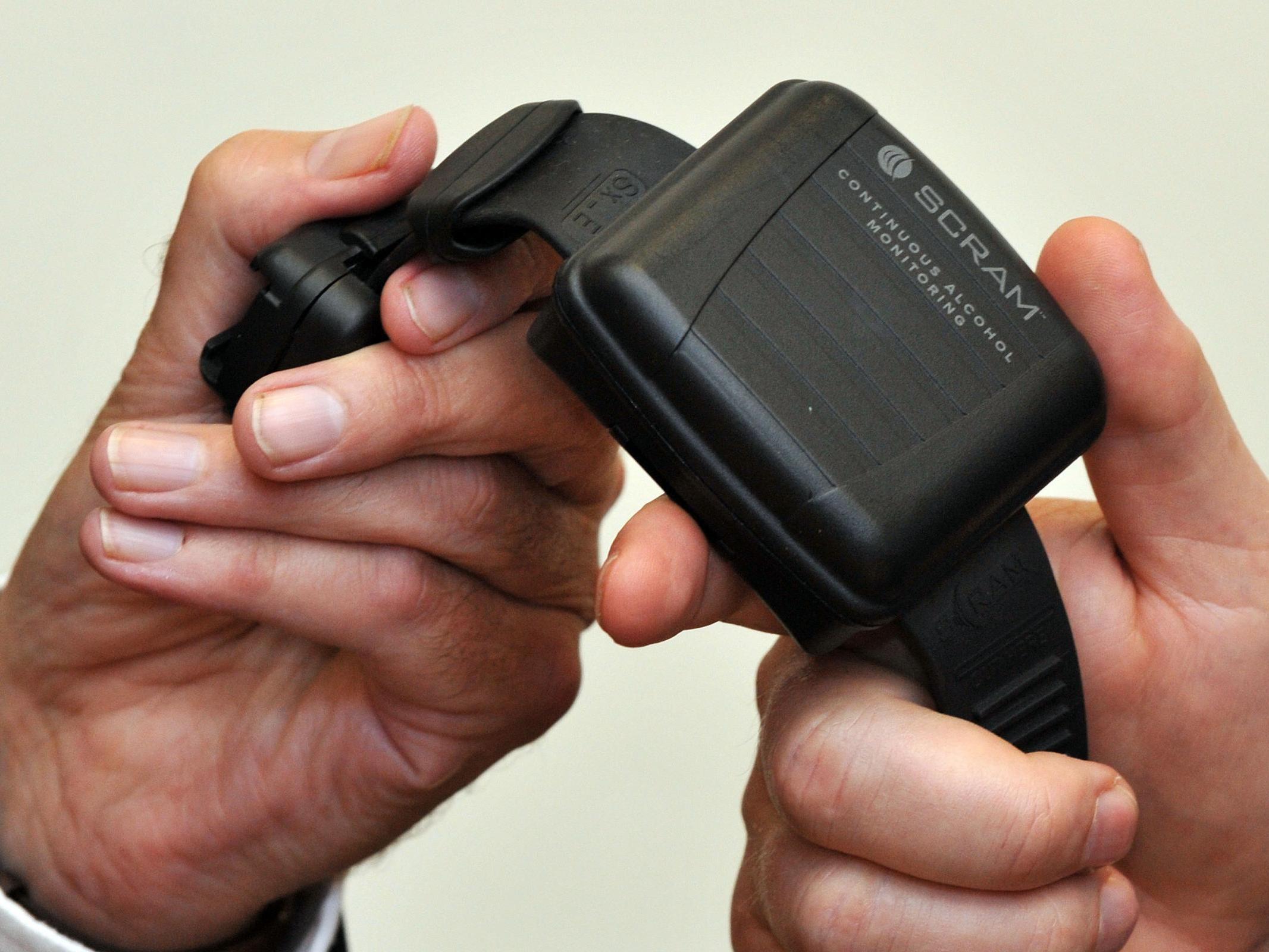‘Sobriety tags’ set to come into force across England and Wales
More than one-third of violent crime is thought to involve inebriated people

Offenders who commit crimes while drunk could be forced to wear “sobriety tags” under new laws.
Legislation introduced on 19 May means that criminals who break the law while under the influence may be banned from drinking in addition to their sentences.
Following a trial in Humberside, Lincolnshire and North Yorkshire, and another in London, alcohol-fuelled criminals could be made to wear “sobriety” ankle tags to monitor their behaviour.
The tags perform around-the-clock monitoring of an offender’s sweat to determine whether alcohol has been consumed.
An estimated 39 per cent of violent crime involves an offender under the influence of alcohol, and the social and economic cost of alcohol-related harm is estimated to be £21.5bn per year, according to the Ministry of Justice (MoJ).
Pilot schemes conducted indicated offenders were alcohol-free on 97 per cent of the days monitored, the MoJ said. Officials claimed the wearers reported this having a “positive impact on their lives, wellbeing and behaviour”.
The testing phases were launched in London in 2014 and in the other regions three years later.
The plan, which will see courts order offenders to wear a tag for up to 120 days, is due to be rolled out across the country later this year.
The technology is said to be able to distinguish between alcohol-based products like hand sanitiser and can detect when contact between the skin and tag is blocked.
Crime, policing and justice minister Kit Malthouse said the tagging system will not only punish offenders but “can help turn their lives around”, adding: “Alcohol-fuelled crime blights communities and puts an unnecessary strain on our frontline services.
“While prison will always be the right place for many criminals, tough community sentences like this can help cut reoffending and protect the public.”
Additional reporting by Press Association
Subscribe to Independent Premium to bookmark this article
Want to bookmark your favourite articles and stories to read or reference later? Start your Independent Premium subscription today.
